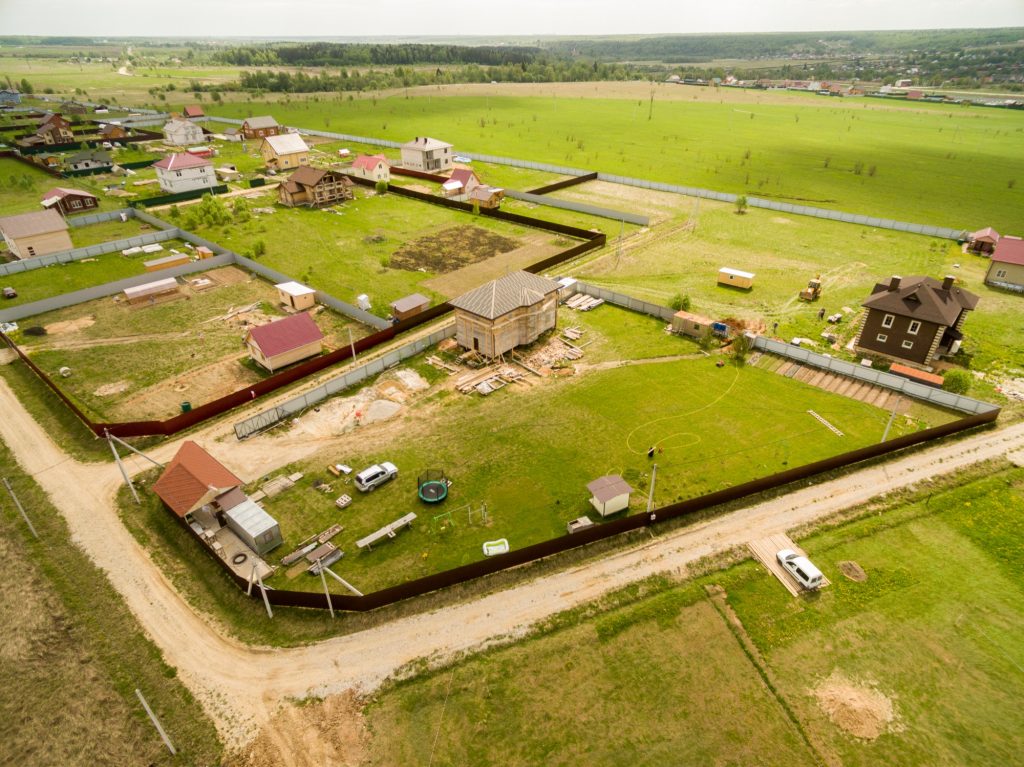
Investing in land may be a transforming experience, allowing you to build your ideal house, start a business, or make a strategic financial move. The procedure of purchasing land, on the other hand, is complex and demands careful attention. In this comprehensive guide, we’ll look at a variety of recommendations to assist you in negotiating the intricacies of land for sale and choosing the ideal property for your needs.
1. Clearly Define Your Purpose
The first and foremost step in the land-buying journey is to clearly define your purpose. Are you purchasing land for residential construction, commercial development, agricultural use, or as a long-term investment? Understanding your goals will not only help you focus your search but will also influence the specific characteristics you should be looking for in the land for sale.
2. Set a Realistic Budget
Setting a budget is a critical aspect of any real estate transaction. Determine how much you can afford to spend on the land, keeping in mind additional expenses such as taxes, fees, and potential development costs. Having a realistic budget will guide your search, ensuring you explore properties within your financial capabilities and avoid unnecessary financial strain.
Read More: The Ultimate Guide to Investing in Luxury Real Estate in Nigeria
3. Research Zoning Regulations
Zoning regulations play a pivotal role in determining how land can be used. Before committing to a purchase, thoroughly research the zoning laws and restrictions in the area. Different zones have different rules, and understanding them is crucial to ensure that the intended use aligns with the property’s zoning. Consulting with local zoning authorities or planning departments can provide valuable insights.
4. Assess Accessibility and Infrastructure
The accessibility of the land for sale and the existing infrastructure in the area are crucial factors to consider. Proximity to highways, public transportation, and essential amenities can significantly impact the property’s value. Additionally, check for the availability of utilities such as water, electricity, and sewage systems. Assessing these aspects ensures that the land is ready for development and adds convenience to your future plans.
5. Work with a Knowledgeable Realtor
Engage the services of a reputable real estate agent with expertise in land transactions. A knowledgeable realtor can be your ally in the complex process of buying land. They bring valuable insights into the local market, assist with negotiations, and help you navigate the paperwork involved. Choose a professional who understands your specific needs and goals.
6. Conduct a Thorough Site Visit
Never underestimate the importance of a site visit. Pictures and descriptions can only convey so much; walking the land allows you to experience it firsthand. During your visit, assess the topography, soil quality, and any potential challenges or advantages the land may present. This firsthand knowledge is invaluable in making informed decisions about the property’s suitability for your intended use.
7. Check for Legal Issues
Performing a comprehensive title search is a crucial step in the land-buying process. The title search will reveal any legal issues associated with the land, such as liens, encumbrances, or ownership disputes. Clearing up these issues before the purchase ensures that you acquire the land with clean ownership rights, avoiding potential legal complications in the future.
8. Consider Future Developments
Researching upcoming developments or infrastructure projects in the area is essential. Changes in the vicinity can significantly impact the land’s value and future prospects. Understanding the local development landscape allows you to make an informed decision about the long-term potential of the property. This foresight is especially crucial if you’re considering the land as a long-term investment.
9. Understand Financing Options
Explore various financing options for your land purchase. Whether through a traditional mortgage, seller financing, or alternative methods, understanding the financial aspects of the transaction is crucial. Consult with financial experts to determine the most suitable financing arrangement for your specific situation. Being well-informed about financing options ensures that you can proceed with the purchase in a financially sustainable manner.
10. Negotiate Wisely
Negotiation is a standard part of any real estate transaction, and buying land is no exception. Work closely with your realtor to negotiate a fair price based on market conditions, the land’s features, and any potential drawbacks. Don’t be afraid to discuss terms that are favourable to you while respecting the seller’s position. Negotiating wisely can result in a more favourable deal and set the stage for a successful transaction.
11. Environmental Considerations
Environmental factors can significantly impact the development and use of land. Investigate the land for any environmental concerns, such as soil contamination, flood risks, or protected wildlife habitats. Understanding these considerations ensures that you’re aware of any potential challenges and can plan accordingly.
12. Survey the Land
A professional land survey is a crucial step in the due diligence process. A land surveyor will accurately measure and map the land, identifying boundaries, easements, and any existing structures. This information is vital for legal and development purposes, providing a clear understanding of the land’s dimensions and limitations.
13. Understand the Resale Potential
Even if you’re purchasing land with a specific purpose in mind, it’s wise to consider its resale potential. Market conditions can change, and your circumstances may evolve. Assessing the land’s attractiveness to future buyers ensures that you maintain flexibility and can make strategic decisions down the line.
14. Check Water Rights
If the land has access to water, whether through a river, lake or well, it’s essential to understand the water rights associated with the property. Water rights can be complex and vary by region. Knowing the details ensures that you have the necessary permissions and can use the water in accordance with local regulations.
15. Get Professional Legal Advice
Engage the services of a qualified real estate attorney to guide you through the legal aspects of the land purchase. A legal professional can review contracts, ensure compliance with local regulations, and provide expert advice on any legal implications. Having legal representation protects your interests and ensures a smooth and legally sound transaction.
Conclusion
Securing the perfect piece of land involves a multifaceted approach that combines research, careful planning, and informed decision-making. By following these comprehensive tips, you’ll be well-equipped to navigate the complexities of buying land. Remember that each piece of land is unique, and taking the time to find the one that aligns with your vision and goals is a crucial part of the process. Whether you’re a first-time buyer or an experienced investor, these tips provide a roadmap for ensuring a successful and satisfying land purchase experience. With diligence and the right resources, you can secure the perfect property when the land is for sale.



I appreciate you informing us that we should set a realistic budget first before we buy a lot since we need to consider additional expenses like taxes, fees, and potential development costs aside from the price of the land itself. I need to find a land property in Clearcreek Township soon where I can get a house of my own built this year since I plan to move here by winter. I’ll keep this in mind while I look for lots for sale here in Clearcreek Township soon to ensure the house gets done this year.